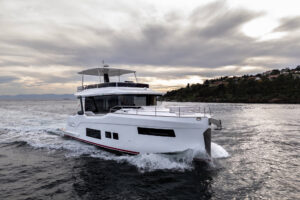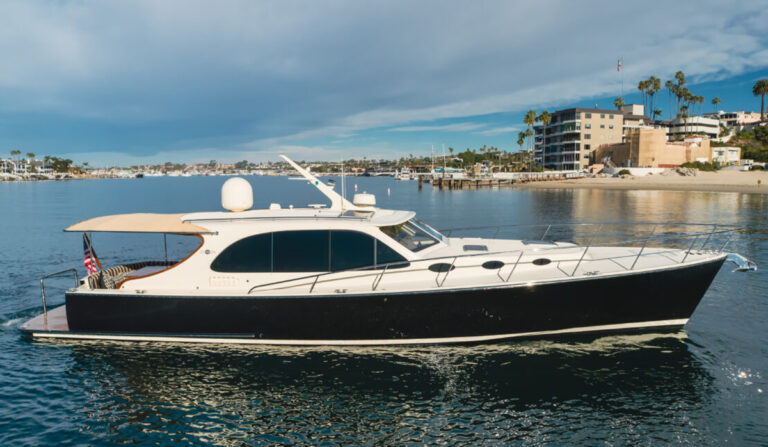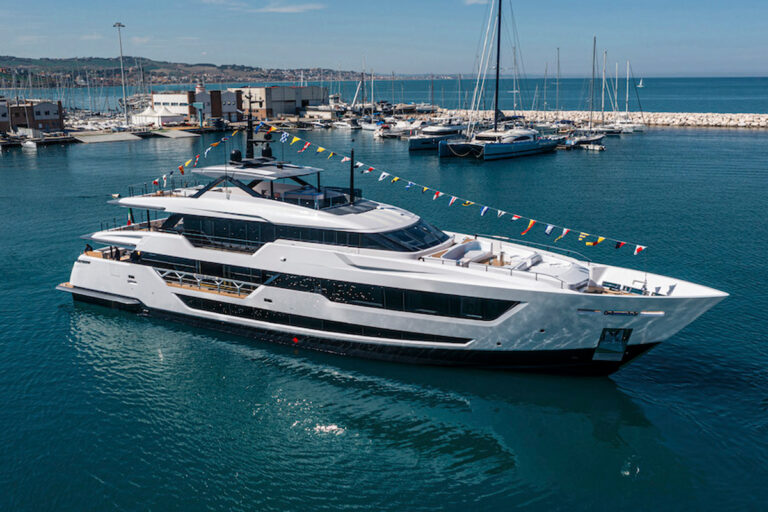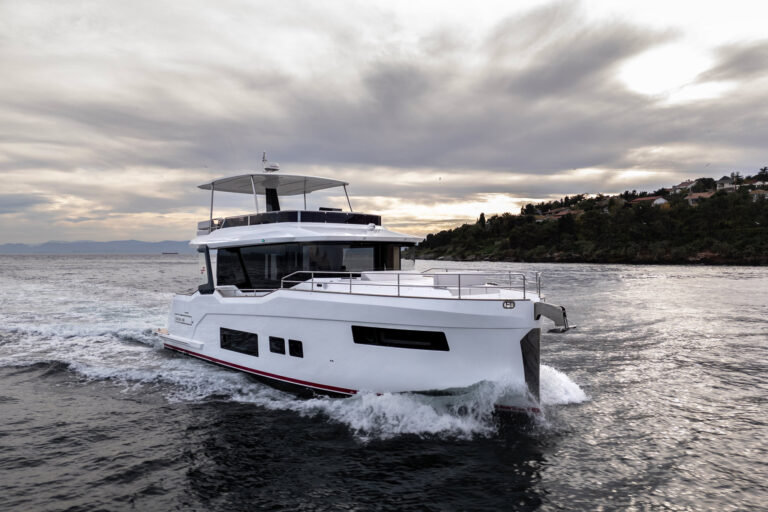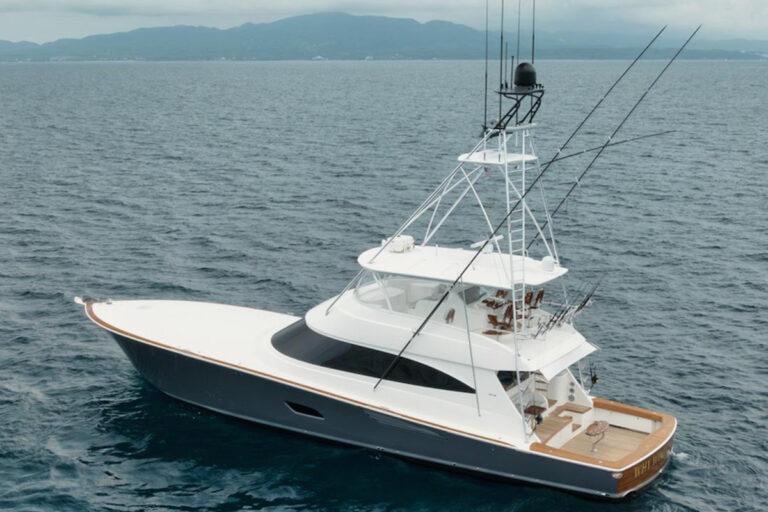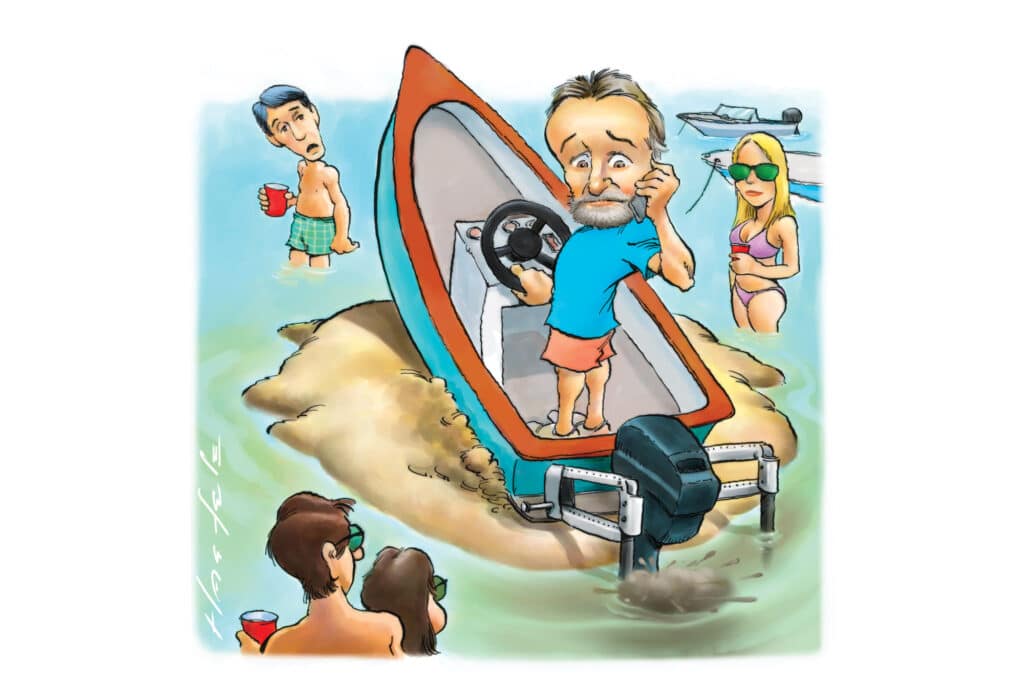
“Take a look: This is the future, Coyle,” announced the lead in the email from my pal Al. I tried to make sense of the photo: a highly polished chunk of stainless steel nestled into a fiberglass pocket surrounded by synthetic teak decking. I zoomed in for a closer look and noticed an outboard lower unit. Oh no!
“Please tell me it’s not a stern anchoring system on an outboard center-console,” I pleaded.
“It’s got a smartphone app, Coyle,” Al replied. “It’ll make sandbar Sundays a breeze.”
How depressing. It seems we no longer have any interest in doing—or having the ability to do—anything for ourselves. Soon, going boating will be nothing more than sitting on a couch and watching.
“What are you gonna do if the anchor gets stuck in the sand? Call the Geek Squad?” I grumbled.
I was an early adopter of semi-sentient silicon devices, as designing boats required left-brain learning that I lacked. For me, math was a foreign language, and a slide rule was as useless as a Rubik’s Cube. The calculator was my lifeline, and computers my savior. Suffering through multiples of the same boring calculations was intolerable, so I wrote computer programs to deal with the tedium.
At sea, I came up in the company of pencil-pushing boaters who considered chart work a competitive sport; “predicted log races” were just not my thing. I confess that with a chart, dividers and a parallel rule, I was never lost, but I never knew exactly where I was until I got there. I was first in line for the first affordable compact LORAN. Chart work became little more than connecting the dots.
Read More from Jay Coyle: Tell Tales
GPS chart plotters have turned paper charts into decorative collectibles, and the only paper left in the design office is next to the toilet. New boats are conceived using silicon devices, and silicon devices endure much of the labor in their birth. I admit that silicon chips have made boats and boating better, but there’s more to the pastime than riding aboard a water taxi. You don’t have to be Nostradamus to see what the nerds noodling with the future of transportation technology have planned for us.
If you drive a car that’s smart enough to talk to your phone, you’ve likely experienced how quickly a helpful assist has escalated into an intervention. Artificial intelligence has already taken to the highway. What happens when it takes to boating—mutiny? “Al, what will you do if your boat decides it doesn’t want to go to the sandbar on Sunday, as it prefers Monday, when there’s less of a crowd?”
“Old-school thinking, Coyle,” he said.
I reminded Al that I was writing programs 10 years before he invested in a computer. I’ll admit that given the levels of courtesy and seamanship I’ve witnessed migrating to and from the sandbar, a designated driver would probably be an improvement, but, for me, the greatest pleasure in pleasure boating is driving.
If artificial intelligence is so smart, perhaps it could learn to drive the boat to the boatyard and haggle over the bill—I’d be an early adopter.




